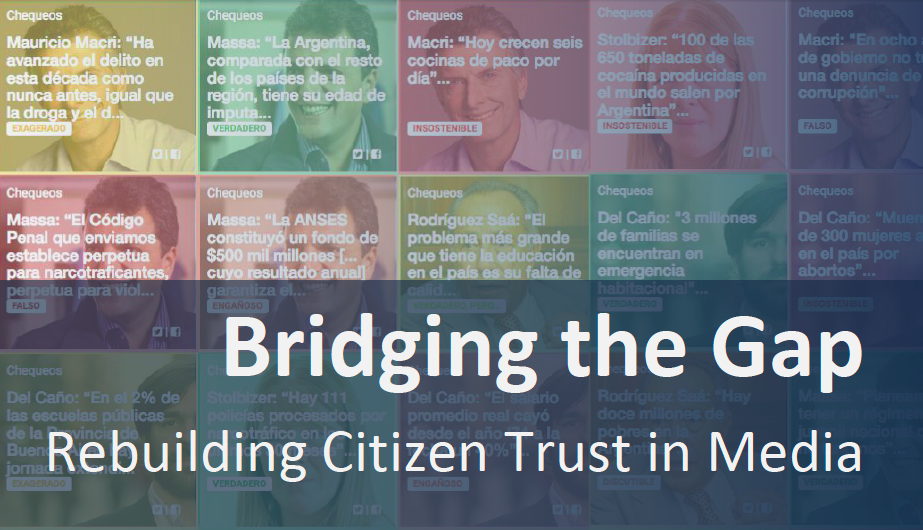—January 2018
What is the truth about journalism?
Journalism is always a bit of a mess. People’s memories are usually flawed. Eyewitnesses differ about the same event. The moment a story passes from one person to the next, it changes. This is only human. And then there is a whole new category to worry about: opinion pretending it is news. Appealing stories, spread through our trusted social media sources, may be secretly designed to persuade us of something. It may be fake news that has no basis in fact.
The response: cynicism
In such a world, it is easy to give up on all news sources, even though we still need information from somewhere, in order to optimize our future. Conspiracies are attractive when we feel we can’t trust anybody but the ideas and people we already know.
How we are manipulated
Reporters who are trying to figure out what is actually going on and tell it honestly–from an nonpartisan referee’s point of view–are increasingly dismissed as creating “fake news,” by the people who need them the most. It isn’t just the professional journalists’ execution of the news story that is questioned—it is their motive. This loss of credibility is a big problem for our entire democracy, as politicians make policy based on fake “alternative facts” that they make up, and attack the reporters who are actually trying—on our behalf–to hold these politicians accountable.
The truth
Are most of the mainstream media out to brainwash us? Of course not. Are the talk show pundits who are transparent about their biases more honest about the facts? It may feel that way, but actually–no! Are the “inside” scoops and conspiracies we are hearing about through social media truer than what we read in the newspaper? Probably not. Opinions are different from facts. We have to pay attention to know who truly has our back and wants us to know what’s actually going on—and who is trying to manipulate us.
We don’t want to be like Edgar Maddison Welch, who thought he was a superhero, blazing into Comet Pizza in Washington, D.C. with his assault rifle to save children from a sex ring he heard about on the Infowars website and social media, that doesn’t exist. He is serving four years in prison, for acting on what he later decided wasn’t “good intelligence.” (It was part of the huge fake news campaign against Hillary Clinton, some of it spread by Russian bots that many people still believe despite the evidence that it is all made up.)
[New York Times Pizzagate Story]
The bottom line
Examining the motive of a reporter is a good thing. But simply deciding that they are all “enemies of the people” and trying to con us, is not the smart way to gather power and knowledge for ourselves. In my experience, it is charlatans with bad motives who are the ones most loudly telling us to mistrust the press in general, to ignore the referees of mainstream media.
The easy answers are rarely the most honest or helpful ones. Opinion is not good enough. Evidence is the key to navigating this crazy world.
The challenge
Just having the news story confirm what I already believe is a terrible basis for trust. Just listening to one type of news source or pundit, without understanding where they got the story, is also a fast track to being manipulated.
Take action to prevent being manipulated
The next time I am told that what I am hearing is “fake news,” I will take a minute or two to look within the story for where the facts in the story came from, and what evidence is offered to back them up. Just saying, as Bill O’Reilly loves to do, “I have someone inside the organization” is not evidence.
- What news sources are they are using (are they quoting people who actually have some expertise and evidence? Are they listening to only Republicans or only Democrats, quoting business leaders and not consumers, media pundits? Are they finding people who actually have deep experience with the subject?
- What is the track record of this news source? Do they generally try to provide fair and carefully checked reports, or are they just spouting opinions without evidence to back them up? Stirring up conspiracies to make money or gain power from your support? If you challenge them, will they offer you real evidence to back up their claims?
- You can save a lot of time by checking the story with the fact-checking organizations. Politifact, Factcheck.org and other fact-checking organizations’ tone can be annoying, but the facts they present about the most popular stories and myths may be an important correction to what we thought we knew. Knowledge is power. It’s worth our time to pay some attention to the details.
I worked with Anya Schiffrin and her team of experts from Columbia University, to help sort out the journalistic truth-tellers from the “fake news” opinion pundits. For further study of this issue, here is the report, Bridging the Gap.

